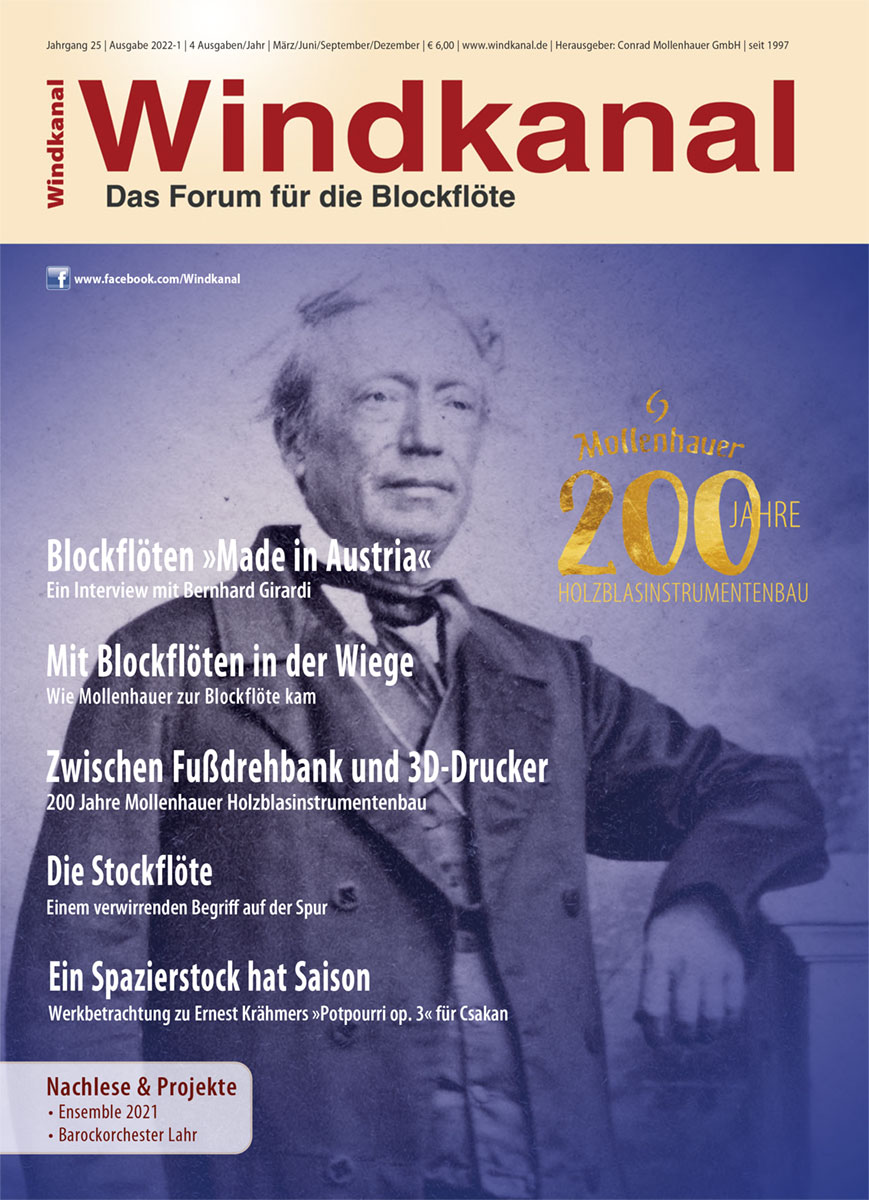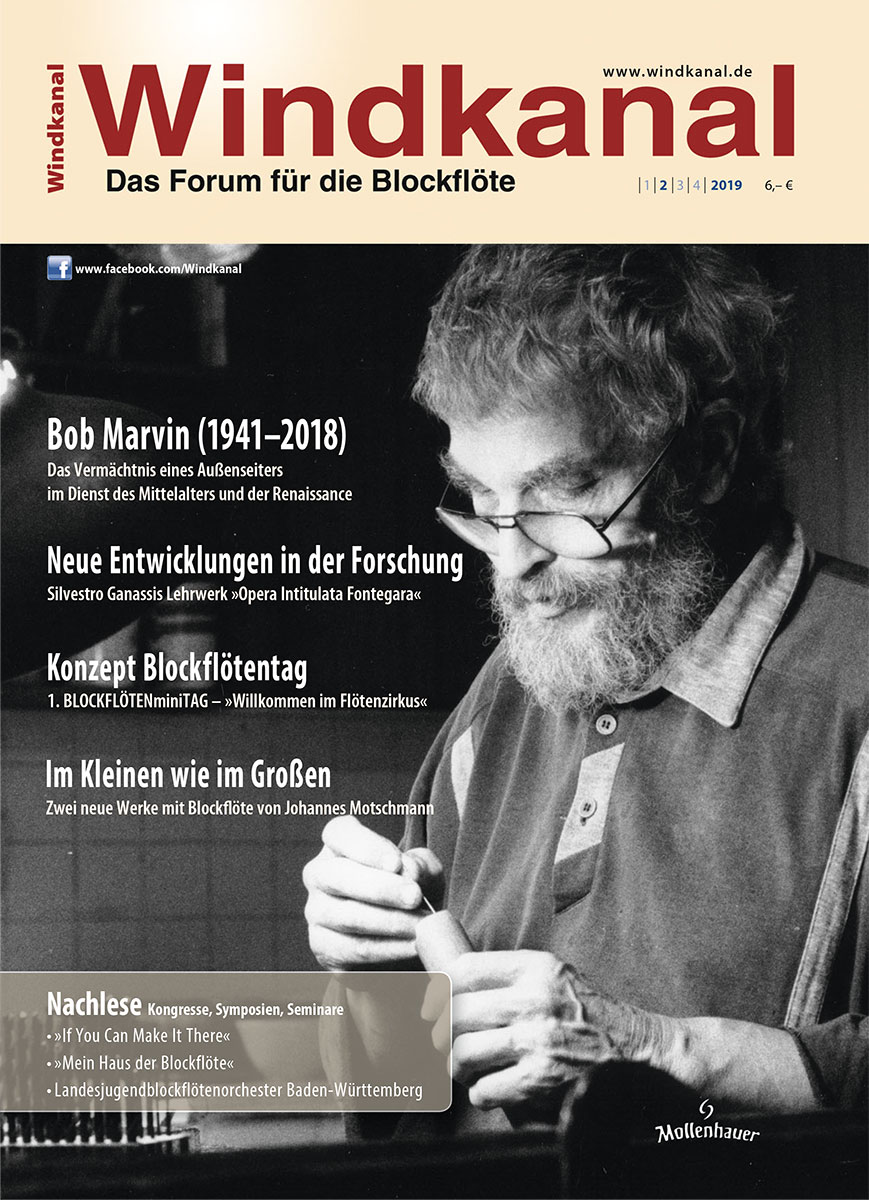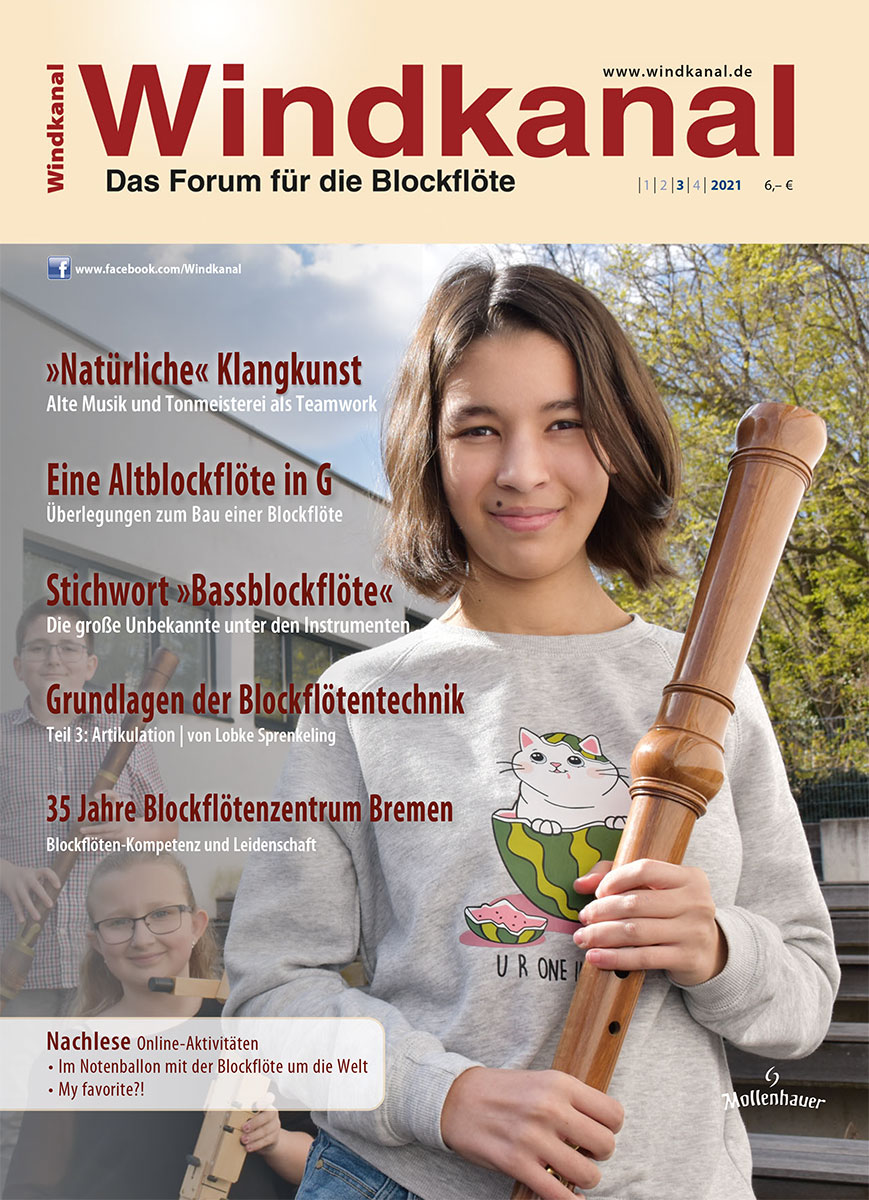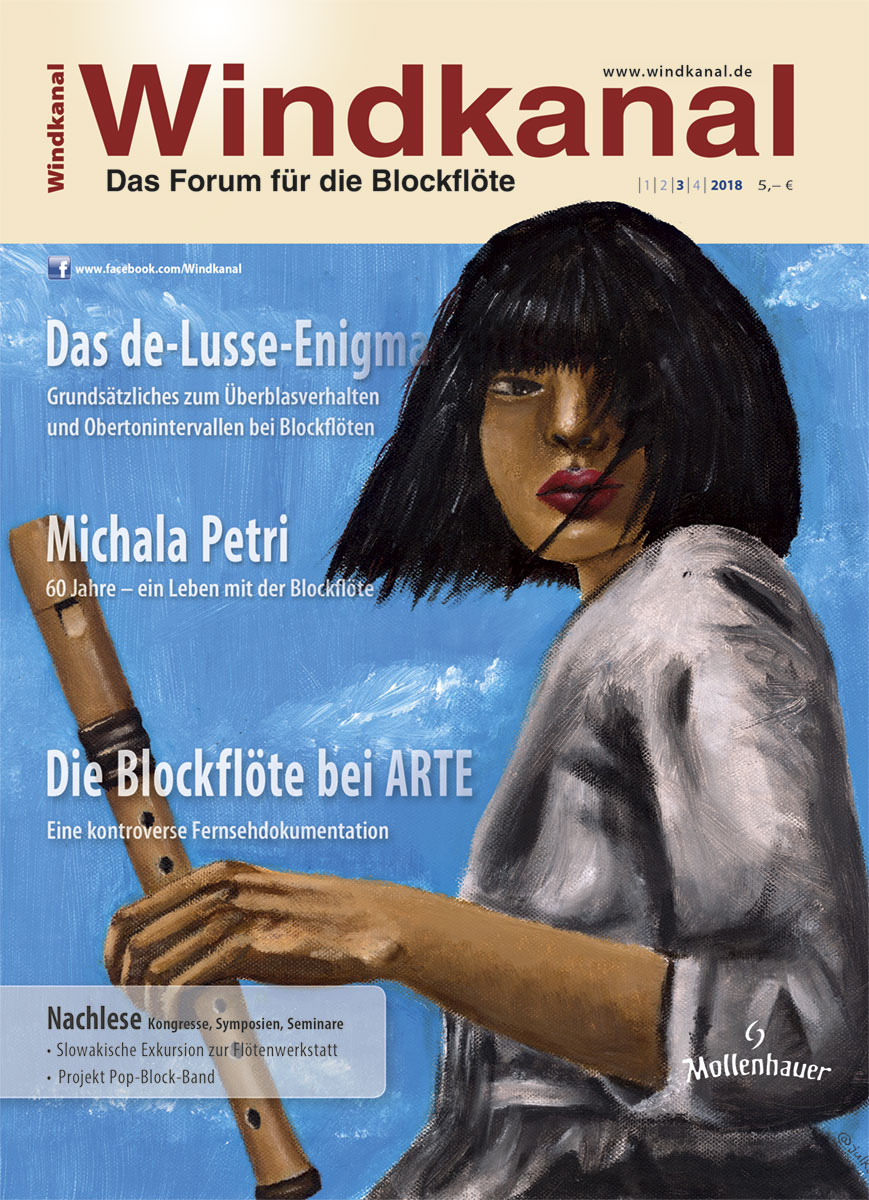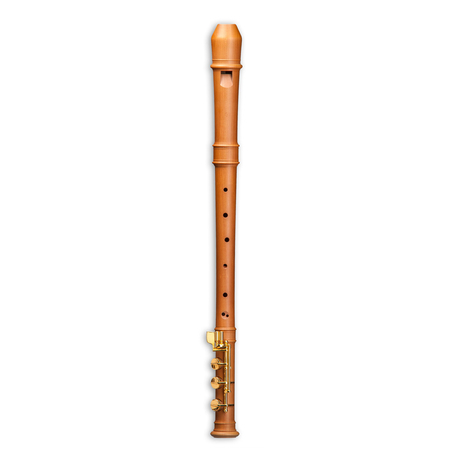Kalender
| Mon | Tue | Wed | Thu | Fri | Sat | Sun |
|---|---|---|---|---|---|---|
|
1
|
2
|
3
|
4
|
5
|
6
|
7
|
|
8
|
9
|
10
|
11
|
12
|
13
|
14
|
|
15
|
16
|
17
|
18
|
19
| ||
|
22
|
23
|
24
|
25
|
26
|
27
|
28
|
|
29
|
30
| |||||
Modern Alto recorder with E-foot pearwood
Harmonic recorders: Mollenhauer & Nik Tarasov/Joachim Paetzold
Strong and powerful: this instrument will help you to hold your own when playing with other modern orchestral instruments or with a piano. It will be equally suitable for playing in a pop, jazz or folk band, in a string orchestra or a piano trio – this recorder won’t go unheard!
A range of almost three octaves: the easy response and chromatic mobility as well as the extended note-range surpasses all traditional models.
Traditional fingering
The Modern Alto uses traditional Baroque fingering. Only the notes in the third octave require different fingerings.
E-foot: The lengthening of the foot joint and the additional key also result in adding a semitone, e1, to the low register and opens up a host of additional alternative and trill fingerings.
Harmonic recorders
The collaboration between recorder player Nik Tarasov and maker Joachim Paetzold resulted in 1996 in the development of the Modern Alto. It is the first modern recorder that follows the principle of Harmonic recorders with pure harmonics and a long bore: overblowing the first octave will produce clear in-tune harmonics whereas in traditional recorders the resulting sounds are not in tune and can at best be used as trill or alternative fingerings. Unimportant as it may at first seem, the ability to produce in-tune harmonics has far reaching consequences for the entire instrument – an incredibly strong and powerful low register and a range extending well into the third octave!
Wood type: Pearwood
Fingering: Baroque; The notes in the third octave require different fingerings
Fingering chart: download
Range: e1 – es4
Pitch: a1 = 442 Hz
Block from Synpor-wood composite: This special block provides the instrument with a new musical 'durability': the core of the block consists of an artificial imitation wood product – synpor, that absorbs the moisture of breath condensation without swelling. The synpor core is embedded into a solid, naturally grown, cedar wood shell.
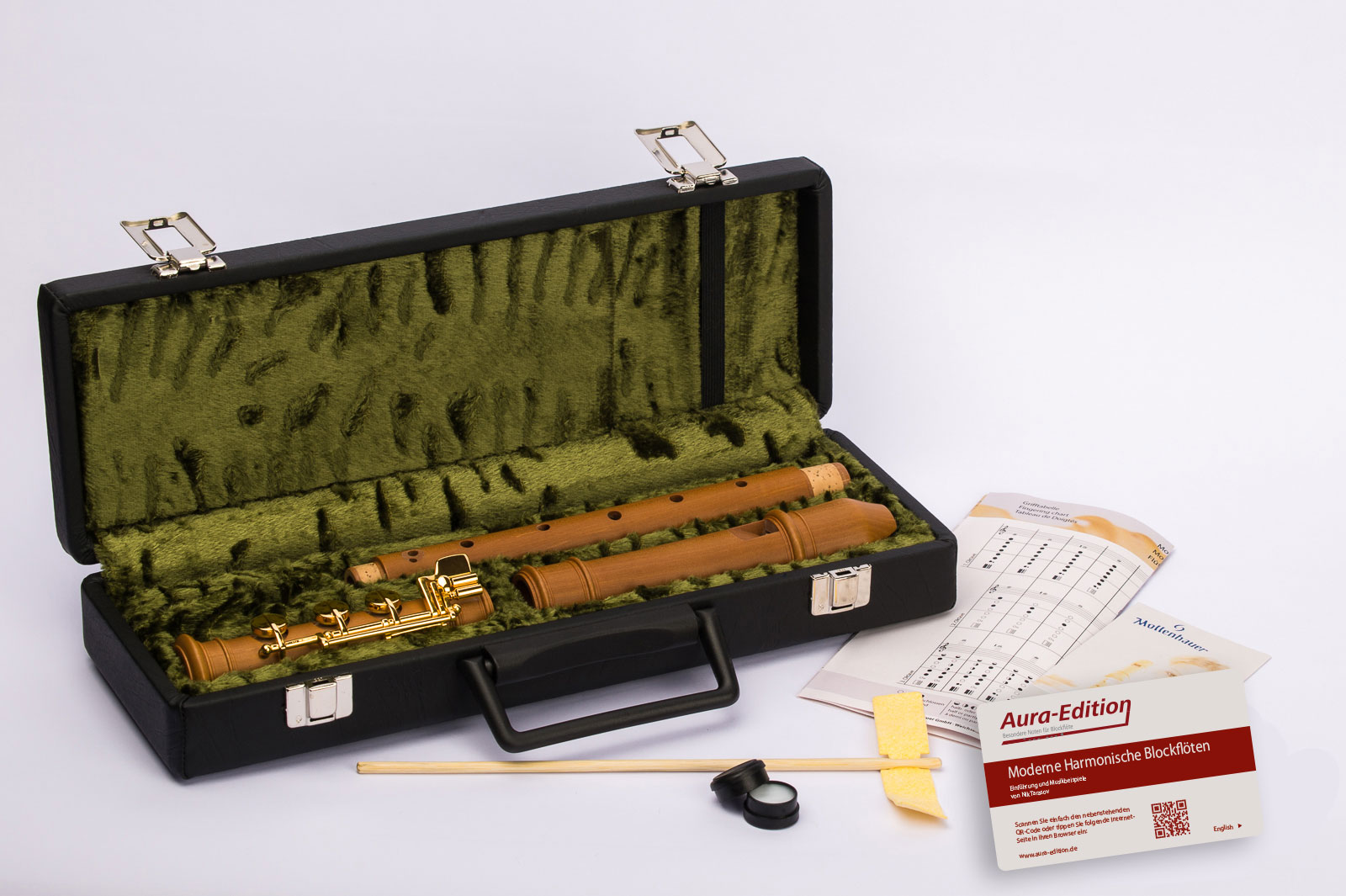
- Instrument
- Access Card to online-information documentation
- Case
- Cleaning rod wood
- Joint grease
- Fingering chart
- Maintenance instructions
Sound sample 1:
Carlo Ambrogio Lonati: Prelude (Walsh, 1705, in: Preludes & Voluntaries).
Nik Tarasov – Modern Alto
Sound sample 2:
Georg Philipp Telemann: Dolce, from Fantasie No. 7 after TWV 40:20.
Nik Tarasov – Modern Alto













